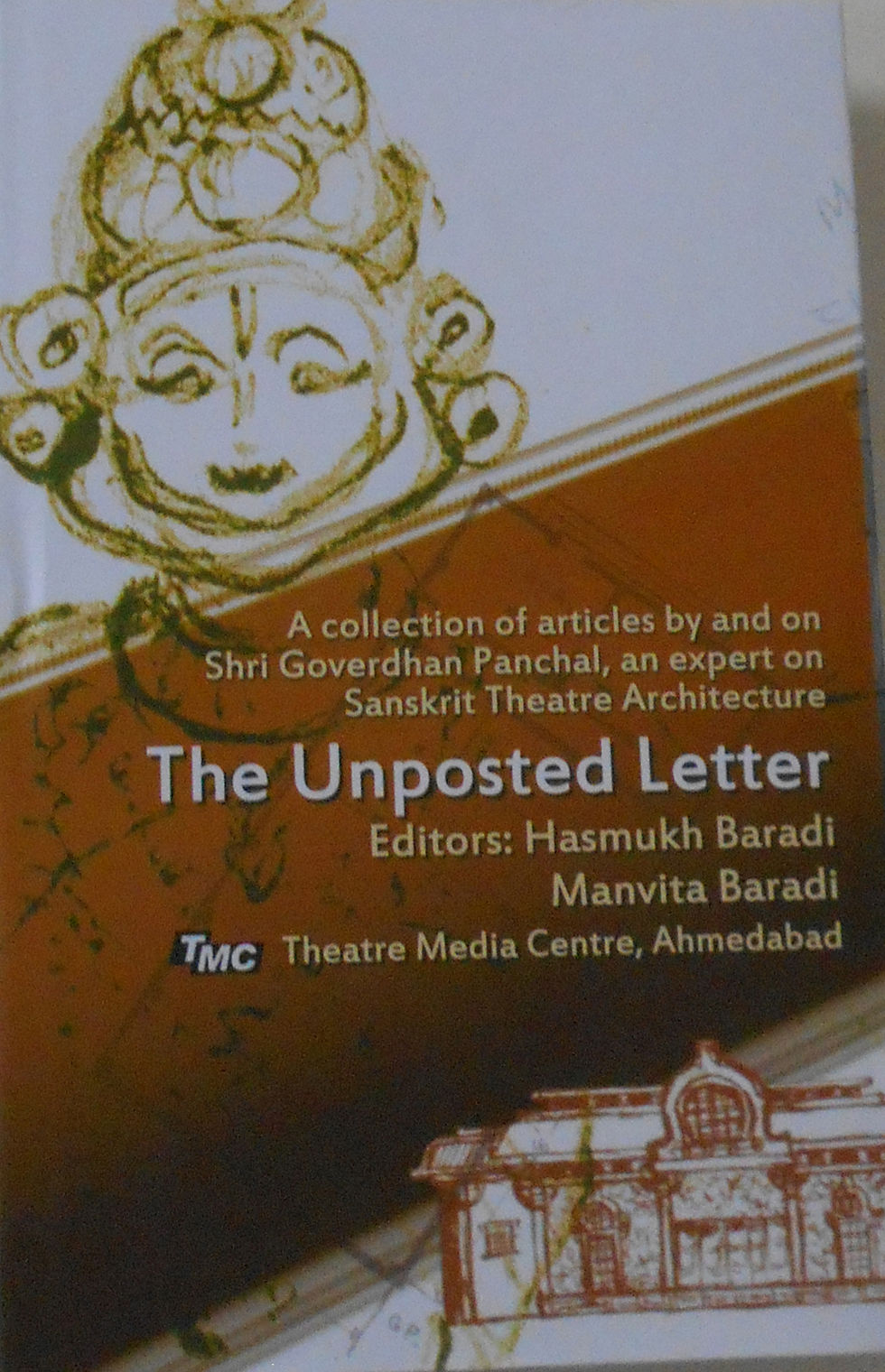
Hasmukh Baradi
Hasmukh Baradi, a veteran theatre and media specialist, is well acclaimed nationally and internationally for his contribution to the theatre and media communities. A playwright, who had to his credit numerous plays, short stories, and theatre articles, he ran the Theatre and Media Center in Ahmedabad, where he taught and groomed adults and children in the dramatic arts. He believed in total and comprehensive education. He also taught Screen Language, Video Production, TV Journalism, and TV Announcing/Anchoring/Scriptwriting. His plays have been translated in many Indian Languages and in English. They have been performed at numerous state, national and international festivals. He passed away on the 4th of February 2017 after a long struggle with pulmonary disease. His mantle has been taken up by his daughter, Manvita Baradi.
Hasmukh Baradi was the Founder Director of the Theatre and Media Centre where training is imparted in Media and the Theatre Arts, Production, Journalism, Scriptwriting. Mr. Baradi studied theatre from the Lunacharsky Theatre Institute, Moscow, 1971. He started his career in 1954 with All India Radio (AIR) in Rajkot, Vadodara and Delhi before proceeding to Moscow Radio (1968-73). After his return in 1974, He joined ISRO Development Communication Unit and began his journey in Television Production. He voluntarily retired as Executive TV Producer DECU / ISRO, Ahmedabad. He produced about two dozen TV serials (both plays and documentary/participatory) since the advent of television in Gujarat. He had conducted numerous media workshops nationally and internationally. He also write extensively for journals and newspapers. His books on TV production and Media Training were printed by the University Book Production Board, and was judged the best book by the Sahitya Academy.




Baradi wrote “History of Gujarati Theatre” for the National Book Trust, Delhi (1996), which was later translated to English and published by the trust. He was the Senior Fellow for Theatre, Department of Culture, Government of India (1990-92). He was also awarded the NARMAD Award for playwriting. He contributed to the Gujarati Theatre entries in the Oxford Theatre Companion, published by Oxford Press, Calcutta, and was a Contributing Editor to the Theatre and Media section of the Gujarati Vishwakosh (Encyclopedia). He was the editor of a Theatre Quarterly ‘Natak’ (Drama) since January’98 which went on to become a nationally known magazine in the field of theatre, which published 77 issues till January 2017. It also brought a special anniversary issue to celebrate the completion of 150 years of establishment of ‘Gujarati Theatre’, which was published in Hindi and English languages with articles on history, growth and development of theatre in Gujarat. Hasmukh Baradi was also awarded the Chandravadan Chimanlal Mehta Award in the year 2000, for life time achievement.
He had also translated several plays and stories directly from Russian language, which he had learned during his five year stay in Moscow while serving on a Government of India assignment at the Moscow Radio. His serials— Tribhete, Dhanji – Makanji – Malji. Chatour Mota etc.—are still considered as landmarks in Gujarati broadcasting. He was the media teacher for more than two decades at various universities/colleges, NGOs, and at institutions like MICA, NID, EDI, and CEPT.




One of his most popular productions was a two hour telefilm entitled “Bhaththi” which was telecast as a part of the 50th anniversary of India’s Independence, by Doordarshan, Ahmedabad. Hasmukh Baradi was a known playwright with a distinct style and post-modern themes. His use of verse in playwriting created a new language for production, and creative expression. Committed to social issues, he wrote and produced for performances on the stage, streets and on electronic media. His characters challenge the establishment and, without being didactic, he used dramatic art for dialogue and social change. Many critics credit him as the first playwright who wrote a full-length verse play in Gujarati “Jasumati Kakuvati”. Beginning with poetry in his early years, he turned to playwriting, after attaining professional training in theatre and media in India and Russia (then the USSR). He had guided more than a generation of actors and directors through his work and workshops. Each play gave a new direction to theatre. He combined the folk and classical elements to create a new Gujarati dramaturgy. His plays had a distinct style of scene building, character development and dramatic narrative.
He has written more than a dozen plays, five of which were produced in Central Sangeet Natak Academy Festivals. He received the Senior Fellowship for his study, ‘Language of theatre and language in theatre’ (2002-2004) by the Sahitya Academy, New Delhi. He also received playwriting award by the Gujarat Sahitya Academy for four times between 1983-2002. He was also awarded “Sandhan” Critics Award for full-length TV play “Rai no Darpanrai”. He conducted several TV production and Script Writing Workshops both as Course Director and Chief Resource Person, and traveled extensively in Europe, Russia and South Asia.
He wrote many research articles in magazines like Sangeet Natak Journal, Gujarat, Kumar, Shabda Srishti, Parab; was a Theatre Critic in Indian Express, Ahmedabad, 1979-84 and Gujarati Natya, Mumbai, 1961-65. He also wrote syndicated columns on theatre and media issues in newspapers: Janasatta, Divyabhaskar Mumbai Samakalen, Mumbai Janambhumi and Times of India, during various periods from 1973 till 2016.




His fluency in English and Russian helped introduce internationally acclaimed works to the Gujarati audience. He translated many plays directly from English and Russian, introducing playwrights like Bertolt Brecht, Jean Genet, Chehov, Durrenmatt, Tolstoy, Gorky. His work on Radio for 10 years and Television for 20 Years, gave him an opportunity to use the techniques of stage in electronic media. He went on to use film and television techniques on stage. This brought him a special insight and his plays were written for performance, aware of the actors and the audience, and they were published only after they were performed. His participatory approach in playwriting, consciously involving audiences, created an opportunity for communication. This makes his position in Gujarati literature truly unique.
